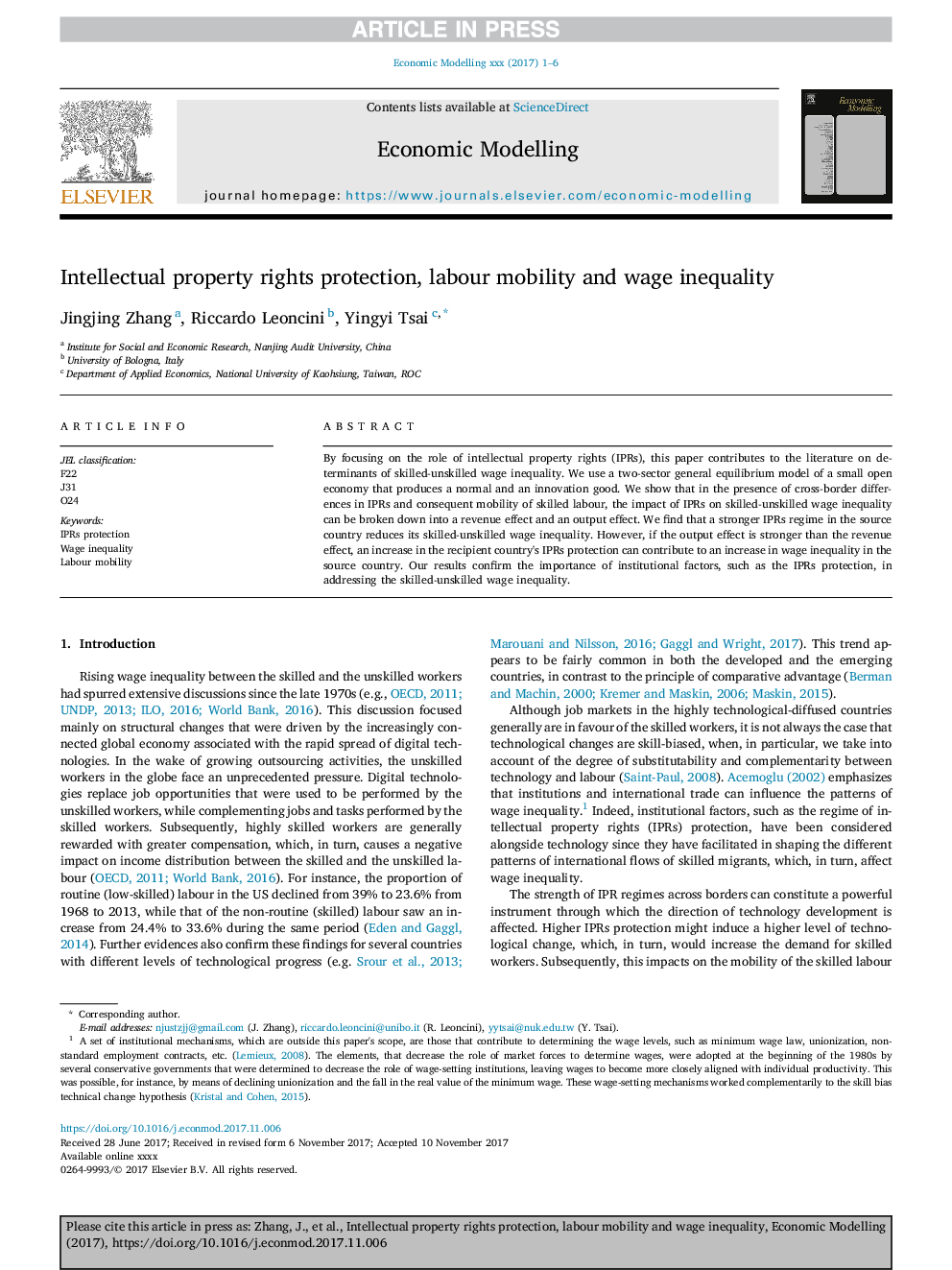| Article ID | Journal | Published Year | Pages | File Type |
|---|---|---|---|---|
| 7347199 | Economic Modelling | 2018 | 6 Pages |
Abstract
By focusing on the role of intellectual property rights (IPRs), this paper contributes to the literature on determinants of skilled-unskilled wage inequality. We use a two-sector general equilibrium model of a small open economy that produces a normal and an innovation good. We show that in the presence of cross-border differences in IPRs and consequent mobility of skilled labour, the impact of IPRs on skilled-unskilled wage inequality can be broken down into a revenue effect and an output effect. We find that a stronger IPRs regime in the source country reduces its skilled-unskilled wage inequality. However, if the output effect is stronger than the revenue effect, an increase in the recipient country's IPRs protection can contribute to an increase in wage inequality in the source country. Our results confirm the importance of institutional factors, such as the IPRs protection, in addressing the skilled-unskilled wage inequality.
Related Topics
Social Sciences and Humanities
Economics, Econometrics and Finance
Economics and Econometrics
Authors
Jingjing Zhang, Riccardo Leoncini, Yingyi Tsai,
